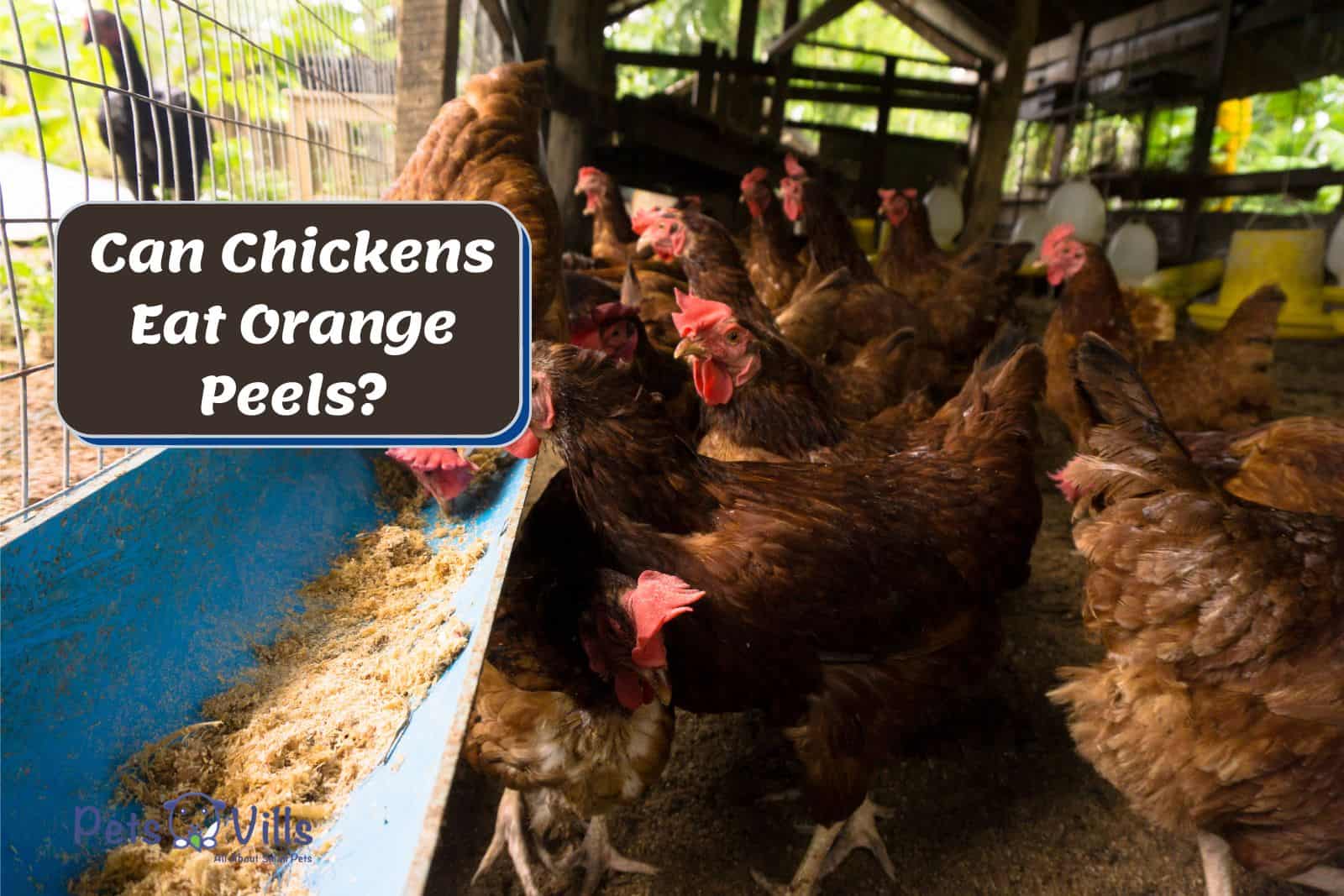Orange peels have been traditionally used in many cuisines worldwide, with more Vitamin C than the fleshier parts, but can chickens eat orange peels? (1)
Usually, a discarded part of the fruit, you’d be surprised to know orange peel can regulate sugar levels in the blood, boost immunity, and even prevent cancer! So maybe it’s not such a bad idea to feed them to your chickens.
Table of Contents
Key Takeaways
- Orange peels are perfectly healthy for chickens when given in moderation.
- Chickens may shy away from oranges due to the presence of citric acid.
- Orange peels contain many nutritional benefits and varying vitamins.
i.e. vitamin A, vitamin C, fiber, manganese, carbohydrates, and magnesium. - Excessive addition of orange peels to the diet causes harm instead.
Continue reading the article to find out the health benefits of orange peels, information about the vitamins they contain, regulating the amounts fed, and more!
Health Benefits of Orange Peels
While chickens usually don’t shy away from eating most foods, whether or not these foods are healthy or poisonous to them is still up for debate.
Keep reading ahead to find facts about the nutrition in orange peels, vitamins, and other fruit, and just how much you should feed them!
Can chickens eat orange peels? While chicken feed covers most of the dietary requirements needed to raise chickens, some extra beneficial variety to this diet and a special treat might make your chickens come flocking.
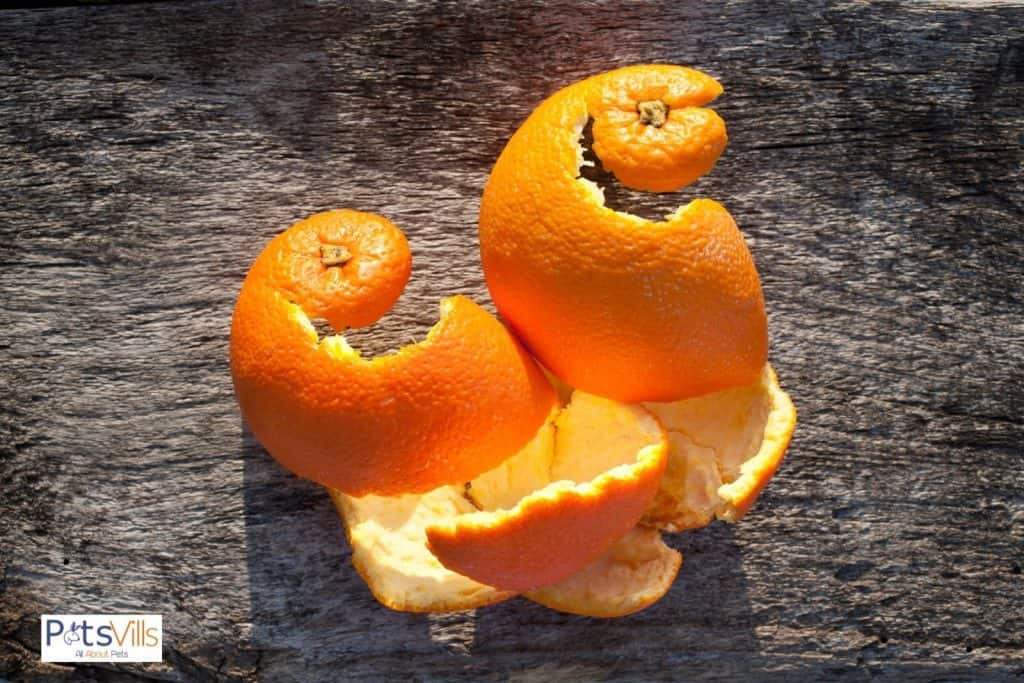
Your backyard chickens won’t say no to finding bits and pieces of orange peels in their chicken feed pile.
This citrus fruit will help your chickens with their digestion by adding vitamins such as vitamins C, A, and B and nutrients including calcium, magnesium, phosphorous, and manganese.
They also have the added benefit of being a healthy snack! Its natural anti-bacterial and anti-microbial properties staves off various diseases, providing your chickens protection from harmful bacteria.
Read ahead to find out the health benefits and facts about these nutritious treats, including chickens’ nutritional requirements, the number of orange peels and other fruit to feed them, and more!
Don’t forget to explore our informative articles on “Can Chickens Have Papaya?”, “Can Chickens Eat Canned Peaches?”, and “Can Chickens Eat French Fries?” to expand your knowledge on optimal chicken nutrition.
Vitamins Present in Orange Peels
A balanced diet is a must-have not just for humans but for animals of all nature. Chickens are no exception. Orange peels are a great source of vitamins and other healthy nutrients, but their main constituents consist of the following.
Vitamin C
Chickens synthesize their own vitamin C and do not require additional vitamin C sources.
Any food containing vitamin C should be given in moderation as an excess of vitamin C can cause your chickens to pull out their feathers and can also lead to a disruption in calcium absorption. This in turn causes their eggshells to become soft and weak.
This is essential to remember when it comes to poor egg production within laying chickens.
A lack of vitamin C, however, is equally disastrous and may cause heat stress, especially in high-temperature climate zones.
Vitamin A
Vitamin A is a major requirement for chicken as a deficiency in it causes health problems. A lack of vitamin A causes growth and eye impairments. It also increases the susceptibility to infections.
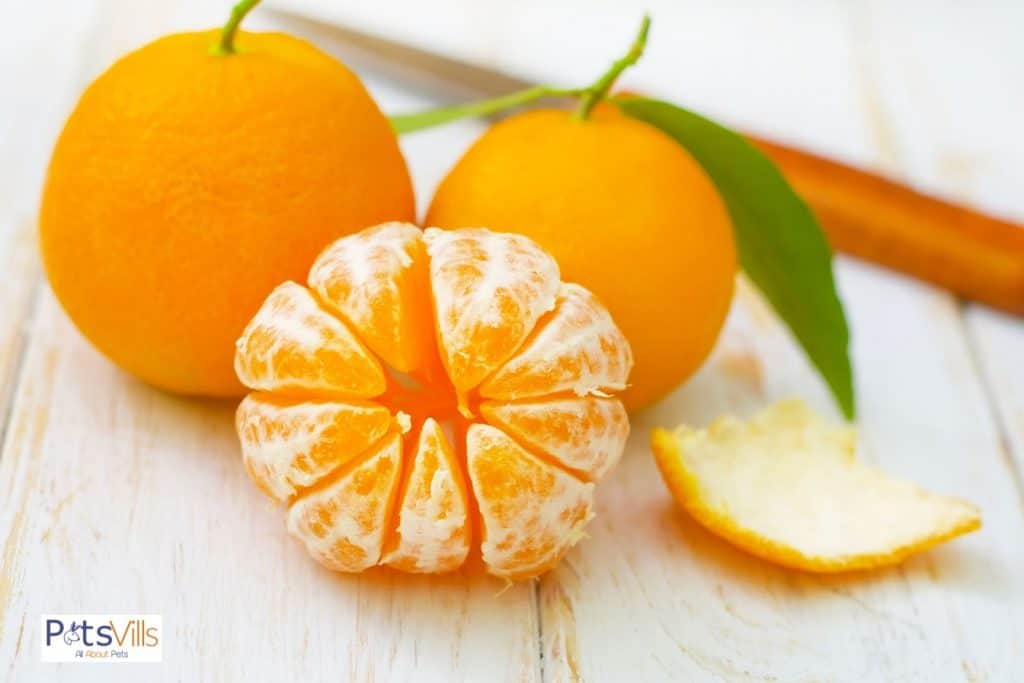
Vitamin A deficiency causes nighttime blindness due to a disease called xerophthalmia otherwise known as dry eye. This disease slows down the regeneration of the cornea after exposure to bright light. (1)
Chickens with vitamin A deficiency are prone to getting sick easily. A lack of vitamin A in the diet is one of the most common reasons for the death of chickens for amateur chicken owners.
Vitamin B
Chickens should have plentiful amounts of Vitamin B in their diets. Vitamin B plays a major role in metabolizing proteins and nucleic acids. It also plays a role in metabolizing carbohydrates and fats.
A deficiency of Vitamin B causes a loss of appetite, and prolonged deficiency may lead to a disease known as perosis. A lack of appetite may cause weight loss for chickens and other severe dietary concerns. (2)
Vitamin B is important to prevent excessive feather plucking in chickens. It also increases disease immunity among other things. It also causes your chickens to grow up with stronger bones and sleeker feathers.
Other Healthy Fruits Loved by Chickens
Chickens are NOT picky eaters. If you’re looking for a tasty treat or healthy addition that you can feed to chickens alongside their normal feed, perhaps a fruit or two might do your chickens some good.
However, some fruits are deadly poisons for your chickens and may become the reason your chickens get an early exit to their lives. Here are some healthy fruits your backyard chickens may come to enjoy.
- Bananas and banana peels
- Apples (Absolutely remove those apple seeds. Those things are poison.) (3)
- Grapes
- Peaches
- Watermelons (sometimes the watermelon rind is fine to eat too)
- Cherries
- Pears
- Cantaloupes
- Blueberries
However, some fruits, such as avocados, avocado peels, and some citrus fruits, are poisonous to chickens. Other foods such as rhubarbs, chocolate, caffeine-containing foods, various uncooked beans, and onions are harmful poisons for chickens.
Eating the aforementioned foods causes issues leading from minor digestive issues to early death.
How Many Orange Peels Are Considered Too Many?
Whether it’s orange peels or bananas, or any other fruit, too much of it is considered harmful to the health of your chicken coop.
If you have any leftover orange peels, feel free to share them with your feathery friends. However, be aware that most chickens shy away from citrus foods if proper moderation isn’t maintained.
You should be aware that chickens can only digest small grainy foods so you should break your orange peels into tiny pieces before attempting to feed your chickens.
Here’s a video experimenting with how chickens behave when treated to an orange:
It might be a bad idea to throw away the entire orange peel to your chickens. I’m sure that it’s no secret that chickens have beaks and can only peck away at their food one piece at a time. Try to add orange peels to their diet once every 1-2 weeks.
If they start shying away from their orange peels after a while, discontinue giving peels to chickens and stick to healthy commercial feeds.
FAQs
1. Why aren’t my chickens eating the orange peels I set for them?
Be sure to wash the orange peels beforehand and break the skin into much smaller pieces so that it’s easier for the chickens to digest. Otherwise, it might be an issue of personal preference.
2. Why can’t chickens eat apple seeds?
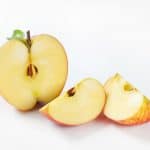
Chickens may or may not eat apple seeds. This is due to the fact that apple seeds are rich in cyanide, and cyanide is generally poisonous to all life and is especially lethal in high doses. Therefore, it is important that you remove the apple seeds before feeding your chickens apples.
3. Can chicken eat sweet potatoes?
Yes, you can serve cooked potatoes, white or sweet, as good foods for chickens. Just ensure never to feed green potatoes or even green tomatoes because they will make your healthy chickens sick.
Conclusion
So, can chickens eat orange peels? Are they a healthy treat for chickens?
Short answer – yes. A slightly longer answer – feed orange peels to chickens in moderation.
Be proud of your innate conservation skills, and stop throwing your orange peels into the bin. As they say, someone’s trash might be someone else’s treasure.
A treasure that contains many nutritional benefits. What a perfect snack for chickens and even for you!
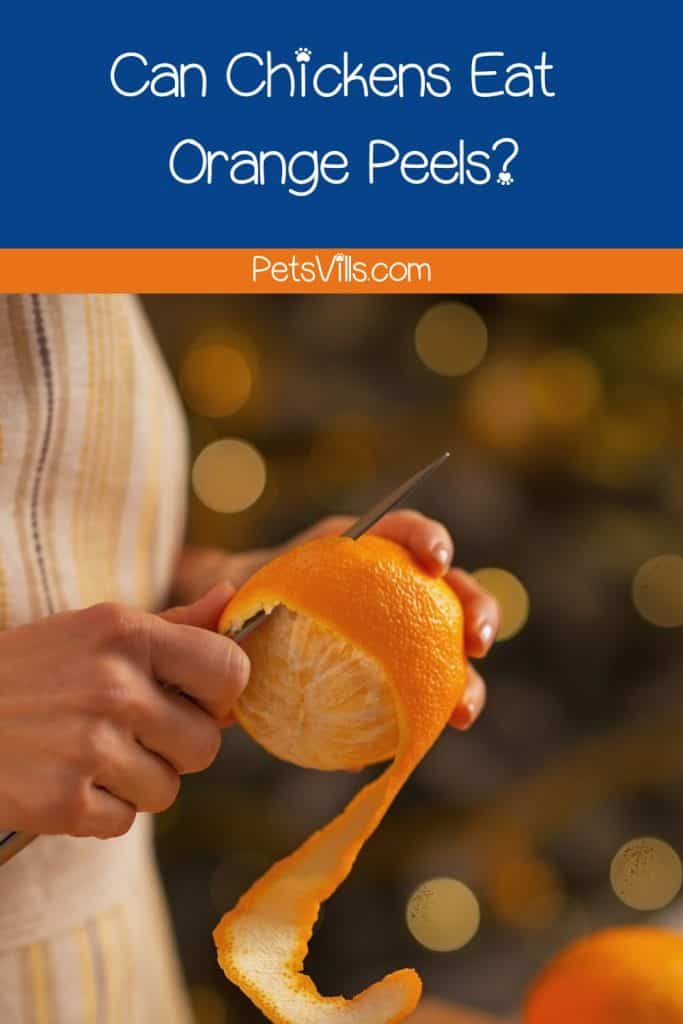
References:
1. Perosis | bird disease | Britannica [Internet]. www.britannica.com. [cited 2023 Feb 15]. Available from: https://www.britannica.com/science/perosis
2. Xerophthalmia: Symptoms, Causes, and More [Internet]. Healthline. 2017. Available from: https://www.healthline.com/health/eye-health/xerophthalmia
3. Fanous S. Are Apple Seeds Poisonous? [Internet]. Healthline. Healthline Media; 2015. Available from: https://www.healthline.com/health/food-nutrition/are-apple-seeds-poisonous
Alina Hartley is a small-town girl with a ginormous love of bearded dragons. It all started with Winchester, a baby bearded who was abandoned at the shelter by his former owners because of a birth defect that caused one front leg to be shorter than the other. Alina originally went to the shelter looking for a guinea pig, but one look at Winchester and it was love at first sight. From that day on, Alina has dedicated her life to learning everything she can about bearded dragons. She loves helping new beardie parents start their incredible journey with these magnificent reptiles.
Follow her on:
LINKEDIN
TWITTER.
Read her latest articles HERE
Learn more about her HERE.

